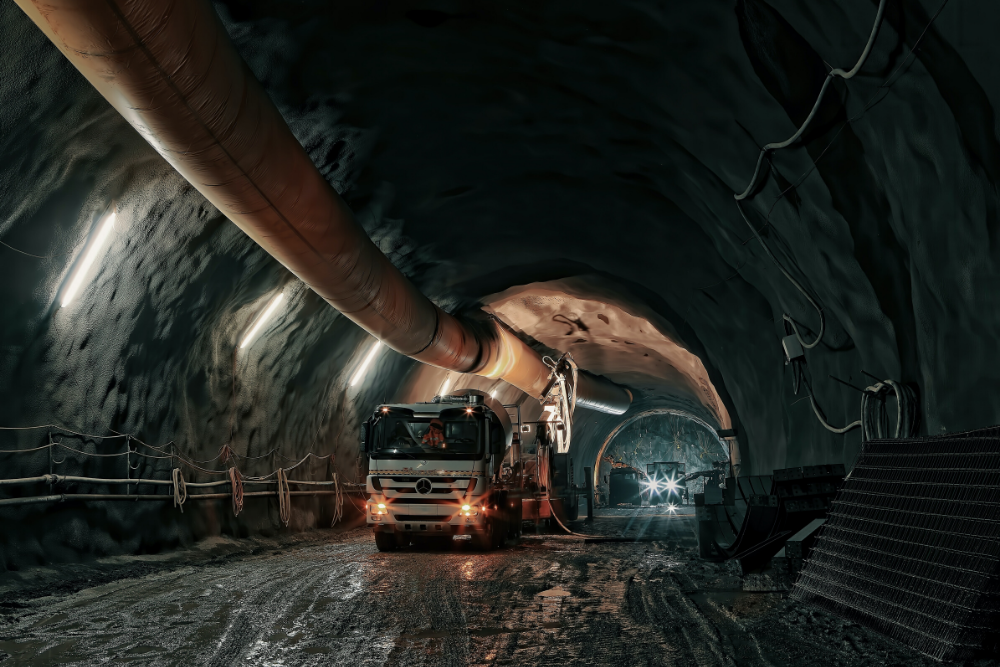Still to this day, mining is one of America’s most dangerous industries. Miners face numerous challenges when working underground, including unexpected hazards and neglected regulations. Also, a dark and damp environment can make breathing difficult. Combined, these factors mean accidents are more common than you would think. The constant threat of sustaining serious or even fatal injuries makes legal representation – and the peace of mind and safety that comes with it – a necessity.
If you or a loved one have been affected in Reno and/or Northern Nevada by a mining accident or suspect negligence by your employer, you need a lawyer who understands the situation, has a reputation for success and can act quickly.
Why should you hire an attorney for your case?
Our team of experienced attorneys and legal staff will deal with the insurance company, and take the worries off your shoulders, so you can focus on healing and recovering from your injuries. Our team will take the steps needed to get you the settlement you deserve. That is why it is important you call Edward M. Bernstein & Associates right away.
What are the Mining Safety Regulations in Nevada?
In Nevada, mining health and safety are highly regulated by the state and federal authorities. Mine operators are required to comply with state and federal regulations to prevent accidents and injuries in mining operations.
 Under Nevada’s Department of Business and Industry, the Mine Health and Education Division oversees mining health and safety throughout the state. The division focuses on ensuring mine operators comply with state and federal mine safety regulations.
Under Nevada’s Department of Business and Industry, the Mine Health and Education Division oversees mining health and safety throughout the state. The division focuses on ensuring mine operators comply with state and federal mine safety regulations.
For the miners, Nevada has special health and safety regulations:
- Hard hats are required in and around all surface mines and underground mines.
- Protection for the face and eyes including safety glasses, goggles, face shields, and helmets must be worn at all times.
- Muffs or earplugs are required to reduce noise.
- Respiratory masks or devices with necessary filters are required to protect against toxic gases and dust.
- Gloves are required to protect against hazards such as underground temperatures, lacerations, chemical burns, and electrical shock.
- Leather or rubber work boots with steel, reinforced toes are necessary to prevent foot injuries such as fractures, broken bones and amputations.
If you feel you have been injured as a result of your employer’s negligence in following regulations and proper procedures, get the assistance you need. The lawyers at Edward M. Bernstein & Associates are here to help you or a loved one with mining injury cases in Reno and Northern Nevada. Our experienced personal injury lawyers focus on protecting the rights of injured victims and people disabled by the injury. Enough said. Just call 702-996-3917 for a free consultation.
Types of Coal Mining Injuries
Miners can be injured on the job in a variety of ways. You need to know who is negligent in these cases and what caused the accident in the first place.
- Equipment Injury and Death: Miners deal with heavy equipment and machinery, often used as underground transportation for employees, materials, and supplies. Over the years, many coal workers have been killed in incidents involving powered transportation machinery and other forms of equipment. The accidents are often caused by safety violations and poorly handled or defective equipment.
- Electric Injury and Death: Working with electricity underground is far riskier than working in most other environments. Coal dust, methane emissions, humidity, and other hazards are known to cause electrocutions and other forms of electrical accidents. The serious risk of electrical injury and death in coal mines once again makes it important for coal companies to always put safety first.
- Coal Mine Explosions: Coal dust is very volatile, and methane gas is emitted during the mining process. Without proper ventilation, methane gas build-up can cause explosions, and this is why coal companies must follow safety standards to track methane levels and take steps to prevent deadly explosions.
- Slips and Falls: Humid conditions causing materials to move around in tightly confined slippery areas can cause a lot of slip and fall accidents. Many of these injuries could be avoided by companies doing more to compensate for adverse atmospheric conditions and monitoring safety for a healthier work environment.
- Flooding: Underground water leaks can cause flooding of mines during seasons of heavy rain and flash flooding. If this problem isn’t addressed quickly, the walls and ceilings inside the mine may collapse and employees may get trapped.
- Roof Falls Injury and Death: Mine roofs collapsing or caving in can result in serious and fatal accidents. We investigate events such as these carefully and ask the right questions to understand how it occurred and who was responsible.
If you or a loved one are affected by any of these issues, please call 702-996-3917 for a free consultation.
What are the types of injury lawsuits?
Edward M. Bernstein & Associates can help you handle your claim for any type of lawsuit where a mining injury has occurred, such as:
- Silicosis and pneumoconiosis
- Back and neck injuries
- Crush injuries
- Spinal cord injuries
- Traumatic brain injuries
- Traumatic dismemberment
- Falls and hidden mine shaft injuries
- Burn injuries
- Disfigurement, scars or deformities
- Defective equipment injuries
- Permanent hearing loss due to noise exposure
If you or a loved one are involved in or affected by a mining accident, our team of experienced lawyers will be on your side, ensuring you’ll receive the compensation you deserve for your injuries, medical bills, wage loss, pain and suffering, and disability. No matter the cause of your injury, the lawyers at Edward M. Bernstein & Associates can help you. Call (702) 508-7334 for a free consultation.
